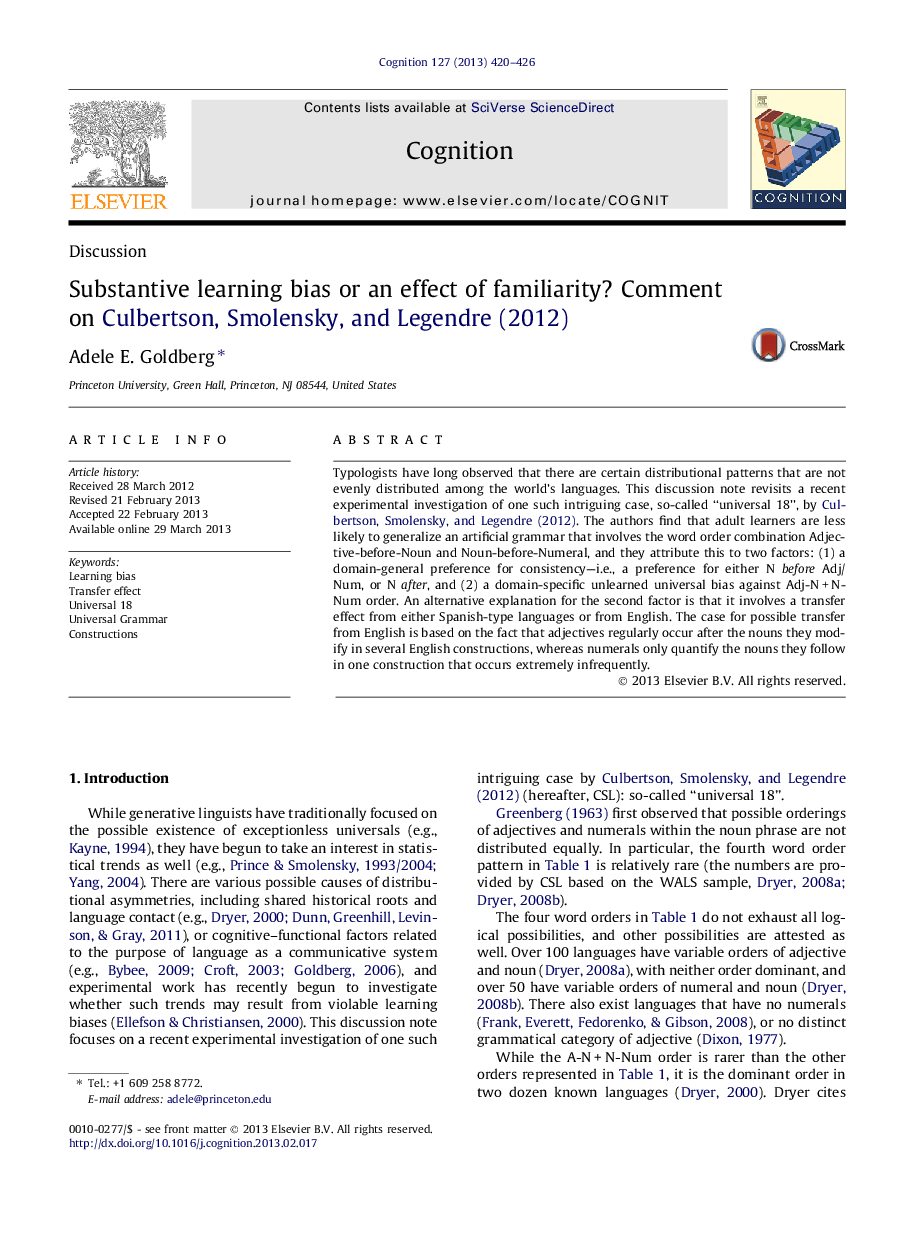| Article ID | Journal | Published Year | Pages | File Type |
|---|---|---|---|---|
| 926771 | Cognition | 2013 | 7 Pages |
Abstract
Typologists have long observed that there are certain distributional patterns that are not evenly distributed among the world's languages. This discussion note revisits a recent experimental investigation of one such intriguing case, so-called “universal 18”, by Culbertson, Smolensky, and Legendre (2012). The authors find that adult learners are less likely to generalize an artificial grammar that involves the word order combination Adjective-before-Noun and Noun-before-Numeral, and they attribute this to two factors: (1) a domain-general preference for consistency-i.e., a preference for either N before Adj/Num, or N after, and (2) a domain-specific unlearned universal bias against Adj-NÂ +Â N-Num order. An alternative explanation for the second factor is that it involves a transfer effect from either Spanish-type languages or from English. The case for possible transfer from English is based on the fact that adjectives regularly occur after the nouns they modify in several English constructions, whereas numerals only quantify the nouns they follow in one construction that occurs extremely infrequently.
Related Topics
Life Sciences
Neuroscience
Cognitive Neuroscience
Authors
Adele E. Goldberg,
